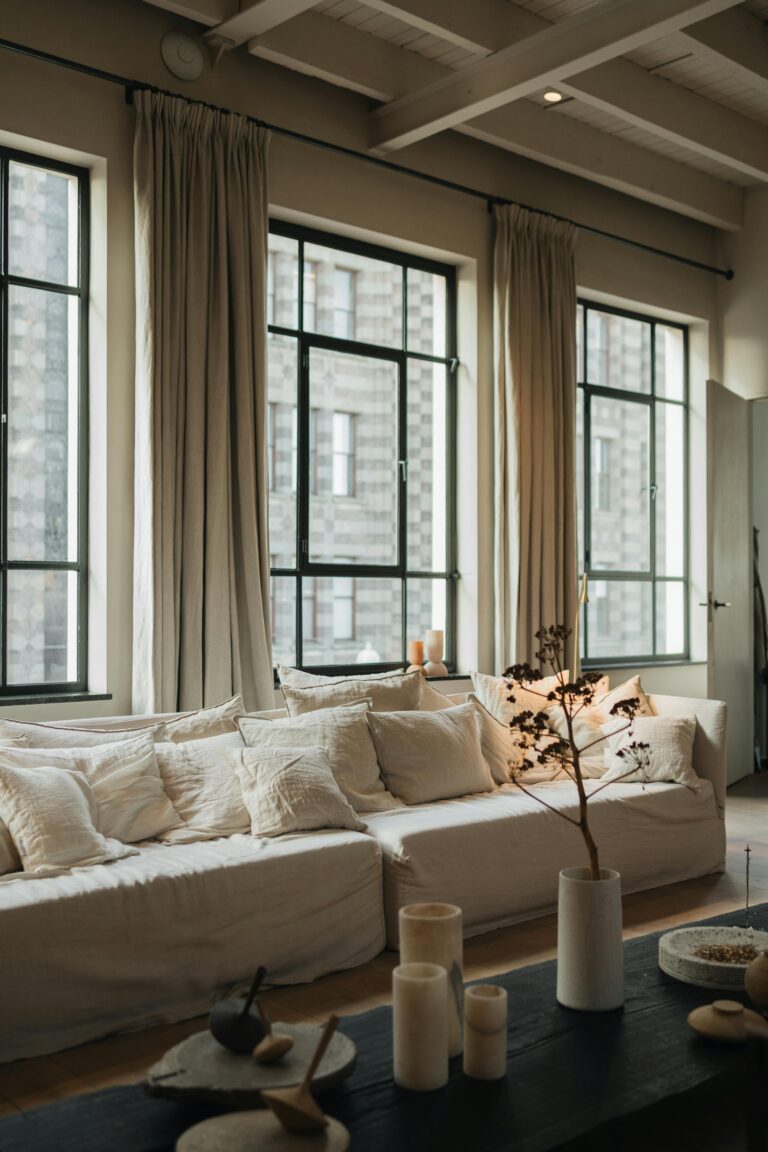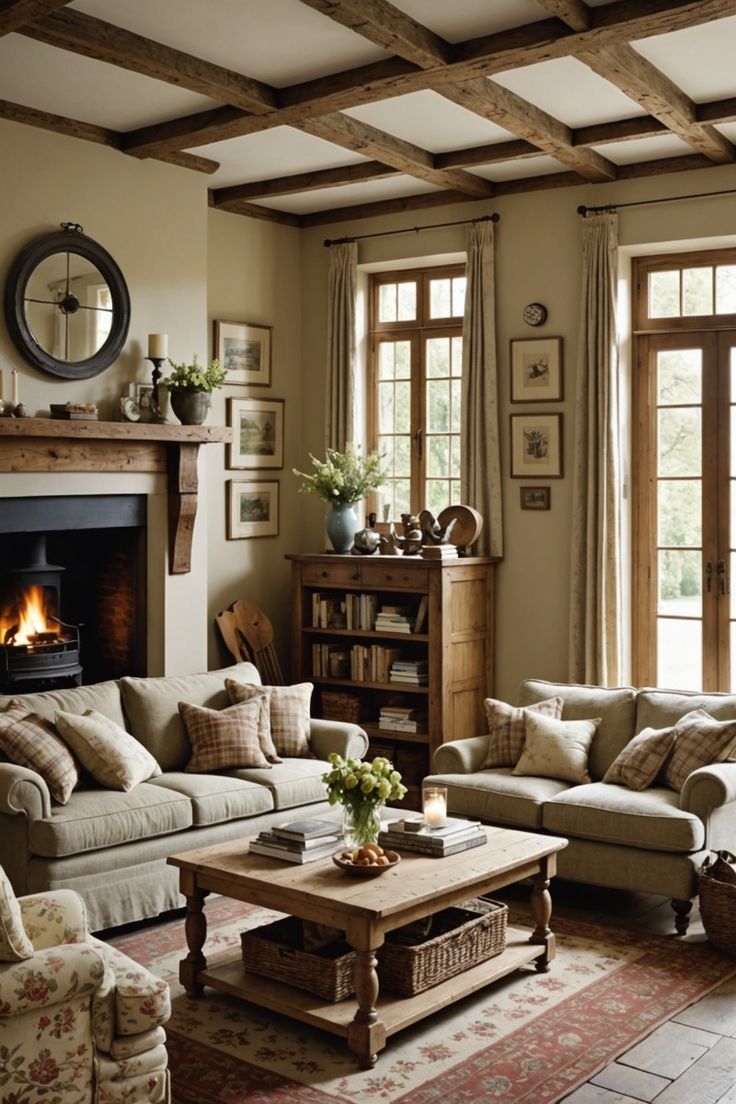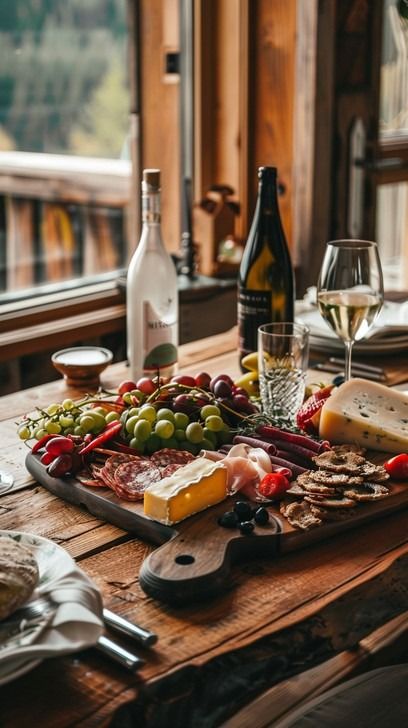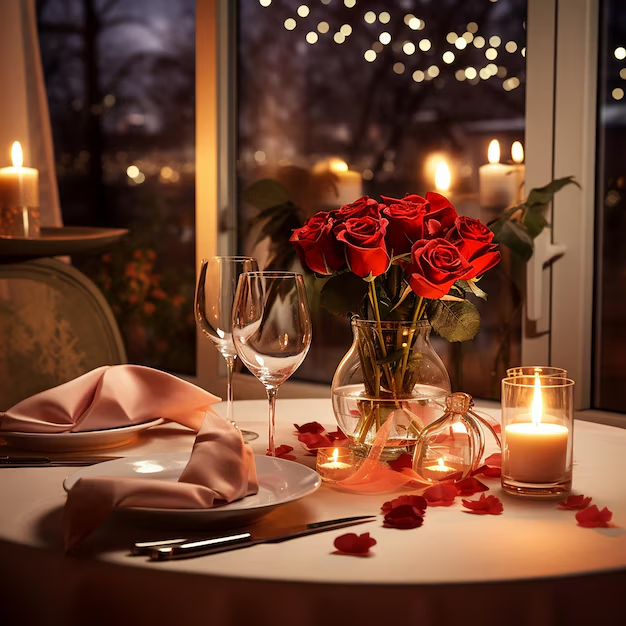Perfection is often celebrated in modern design – flawless lines, polished finishes, and carefully staged spaces. But at HayGood Manor, we believe true beauty often lies in the opposite: the slightly worn, the lovingly used, the perfectly imperfect details that tell a story. This philosophy aligns beautifully with the Japanese concept of Wabi-Sabi, which finds elegance in imperfection, simplicity, and the passage of time.
When paired with Southern living – known for its warmth, hospitality, and deep appreciation of tradition – Wabi-Sabi becomes more than a design approach. It becomes a lifestyle, one that embraces authenticity, memory and the soulful comfort of a home that feels truly lived in.
What is Wabi-Sabi?
Wabi-Sabi is a centuries-old Japanese philosophy rooted in Zen Buddhism. It celebrates the imperfect, the transient, and the incomplete. A cracked bowl repaired with gold, weathered wood with a faded finish, or a handmade quilt with uneven stitches – all of these hold beauty because they remind us of life’s impermanence and humanity.
Instead of striving for flawlessness, Wabi-Sabi asks us to embrace what is real, raw, and enduring.
Wabi-Sabi Meets Southern Living
The South has always valued heritage, storytelling, and the idea that homes should feel lived in rather than staged. Pairing Southern tradition with Wabi-Sabi brings out a sense of warmth that no glossy magazine image can replicate.
- Weathered Wood – Old rocking chairs, porch swings, or farmhouse tables tell the story of countless gatherings. Instead of refinishing every scratch, Southern homes often let the patina shine.
- Handmade Textiles – Quilts, lace curtains, and handwoven rugs are imperfect by nature, yet each stitch carries love and history.
- Inherited Pieces – Grandma’s hutch with its worn handkes or a chipped set of china aren’t flaws – they re heirlooms that tie generations together.
Southern living already celebrates these imperfections. Wabi-Sabi simply gives us language for it.
Everyday Practices of Wabi-Sabi at Home
You don’t need to redecorate to bring this philosophy into your space. Instead, look for opportunities to embrace the imperfect beauty already around you.
- Choose Natural Materials – Wood, clay, linen, and stone age gracefully, reminding us of nature’s cycles.
- Celebrate the Handmade – Pottery with uneven glaze or a hand-thrown vase has a unique soul that mass production lacks.
- Keep It Simple – Instead of cluttering shelves, allow space for a few meaningful objects to breathe.
- Find Beauty in Aging – A leather armchair that shows wear, a faded family photo, or tarnished silver brings depth, not decay.
- Create Cozy Rituals – A chipped mug filled with morning coffee on the porch can feel more comforting than the most expensive tableware.
The Emotional Side of Imperfection
At its heart, Wabi-Sabi isn’t about design – it’s about perspective. It encourages us to release the pressure of perfection in our homes and our lives. Southern living thrives on this same principle: hospitality doesn’t mean a flawless table setting, but rather a warm welcome and food served with love.
At home that embraces imperfection feels more authentic, more comforting, and more alive. Guests don’t remember spotless shelves; they remember the laughter shared in a room that feels real.
Final Thought
At HayGood Manor, we see beauty in the details that others might overlook – the worn edges of a favorite book, the uneven lines of a handmade table runner, the way sunlight falls through slightly faded curtains. These imperfections are not flaws; they are the soul of a home.
Wabi-Sabi reminds us to appreciate the imperfect, the aged, and the incomplete. Southern living already knows this truth: that life is richer when we allow our homes – and ourselves – to be beautifully human.
So, the next time you notice a scratch on your dining table or a crack in your teacup, pause. Instead of hiding it, celebrate it. Because in that imperfection lies the story of a life well-loved.









